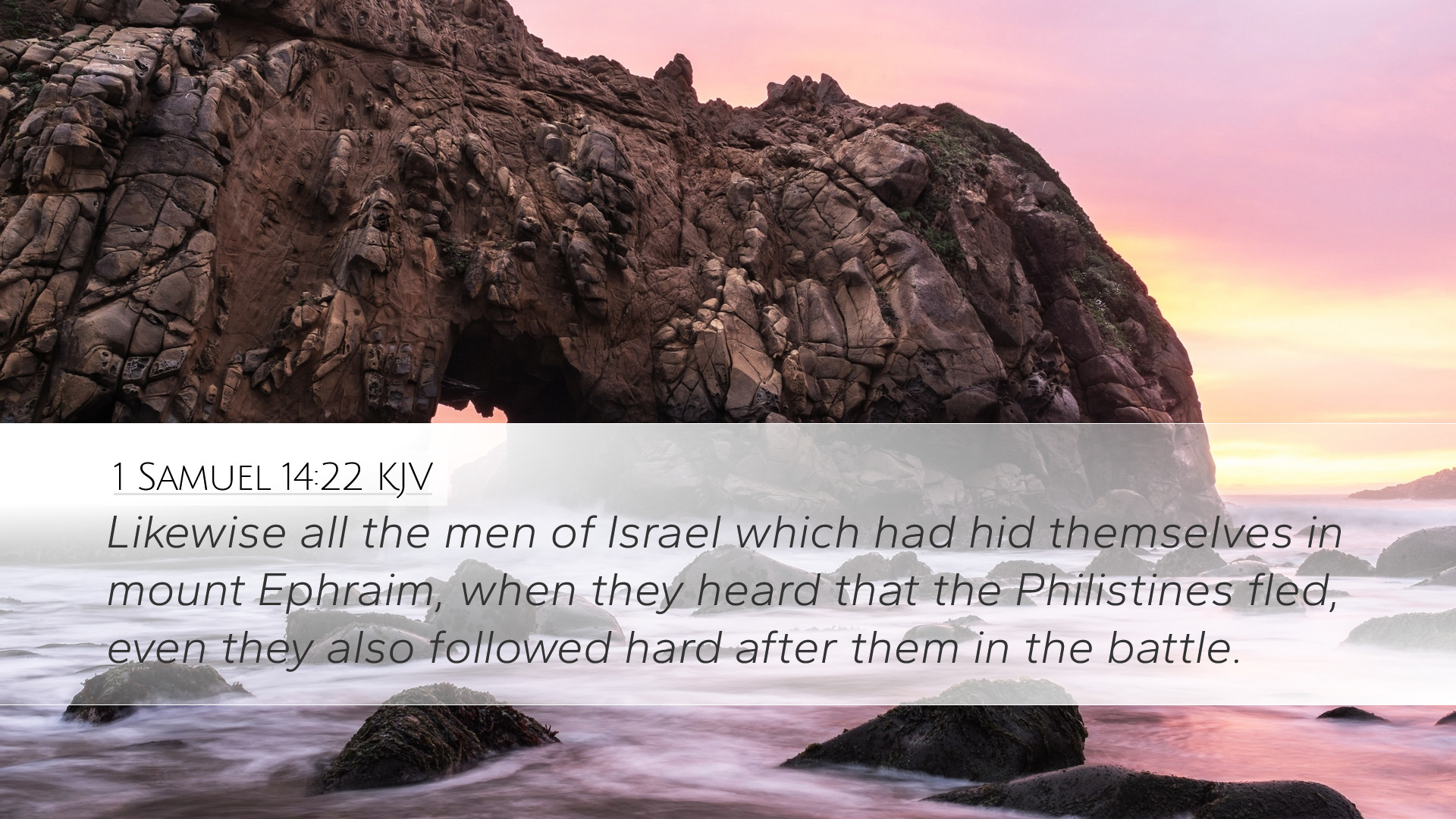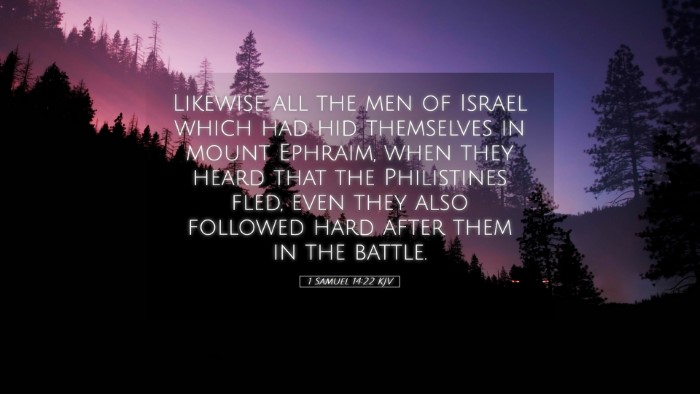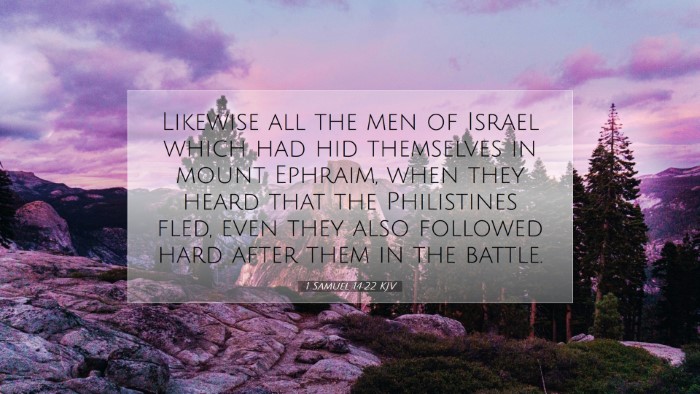Commentary on 1 Samuel 14:22
Bible Verse: "Likewise all the men of Israel who had hidden themselves in the mountains of Ephraim, when they heard that the Philistines fled, even they also followed hard after them in the battle." (1 Samuel 14:22)
Introduction
This verse occurs within the context of a pivotal battle between the Israelites and the Philistines. It encapsulates a moment of transformation and collective action from the Israelite forces. Here, we will explore its theological, historical, and practical implications drawing insights from various public domain commentaries.
Contextual Background
The backdrop of 1 Samuel 14 involves a great military confrontation where Saul, the first king of Israel, leads his men against the Philistines. Prior to this moment, many of the Israelites were in hiding, gripped by fear of the overwhelming enemy forces. However, the tide of battle begins to shift because of Jonathan's remarkable act of faith, which ignites courage among the Israelite ranks.
Historical Significance
This verse emphasizes the power of leadership and the influence of courageous action. Jonathan's initiative sets off a chain reaction among the Israelite soldiers. Albert Barnes highlights that the retreat of the Philistines serves not only as a military victory but also as a spiritual awakening for the Israelites.
Thematic Insights
- Fear and Courage: In the initial stages of conflict, fear often paralyzes the best of warriors. The men of Israel hid themselves, illustrating the paralysis of fear. It is an apt reminder of how fear can incapacitate those chosen for victory.
- Inspiration from Leadership: Jonathan's actions provide a potent illustration of how leaders can inspire and mobilize others. The faith of one can spur the faith and action of many, demonstrating the communal aspect of leadership.
- Collective Action: The retreat of the Philistines catalyzes those in hiding to emerge and join the fray. This reflects the vital principle that collective action can lead to greater effectiveness in achieving a common goal.
Theological Reflections
Matthew Henry observes that the men who had hidden themselves represent a segment of society that, in times of turmoil, may withdraw into self-preservation. Their eventual resurgence following the news of victory illustrates the dynamic nature of faith and action in God's providential dealings with His people.
Furthermore, Adam Clarke points out the divine orchestration of events—God’s providence is demonstrated as the men who were once frightened now become valiant as they witness the power of their God at work. This reflects a theological truth that God works through human agency and circumstances to achieve His purposes.
Practical Applications
The implications of this verse are profound for the contemporary church. The dynamics of fear, faith, and action are relevant for believers today. Here are several applications:
- Overcoming Fear: Just as the Israelites were initially hindered by fear, many believers may find themselves paralyzed by their circumstances. Recognizing that God can turn the situation around encourages us to step out in faith.
- Role of Leaders: This passage underscores the importance of Godly leadership. Pastors and spiritual leaders are called to inspire courage among their congregations, encouraging believers to act in faith.
- Community Mobilization: The collective emergence of the Israelites to battle highlights the need for community in the church. Actions taken by individuals can have a ripple effect that motivates others to participate in God’s work.
Conclusion
1 Samuel 14:22 portrays a profound moment of transformation, demonstrating how fear can give way to courage through faith and collective action. As we reflect on this scripture, we see the character of God—His ability to bring victory from fright, and his call for His people to rise up in faith. For pastors, students, theologians, and Bible scholars, this passage is a rich source of insight about leadership, community, and the sustaining power of divine providence in the life of believers.


